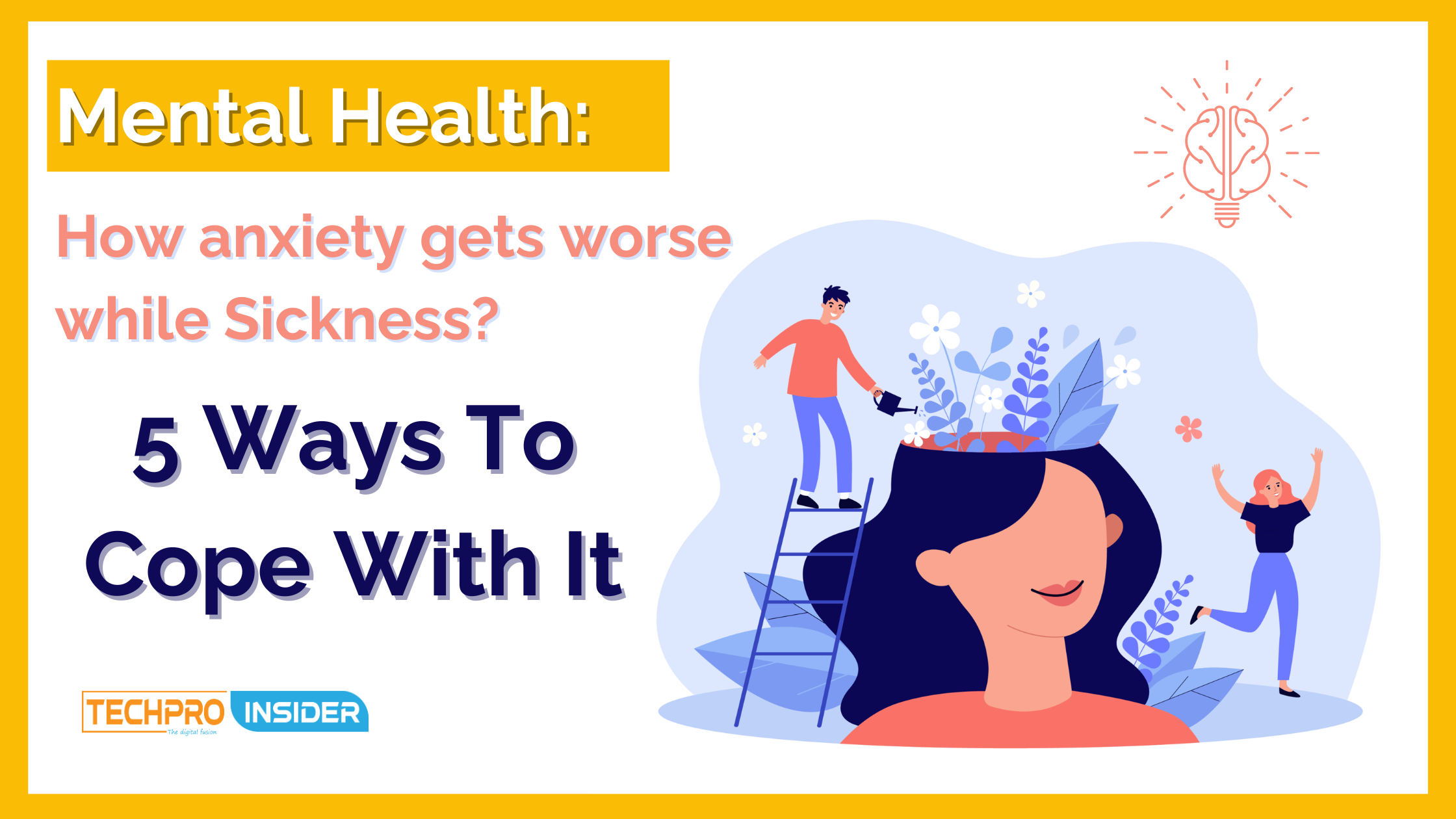Introduction
Feeling under the weather? We’ve all been there. A scratchy throat, a pounding headache, a wave of nausea – these physical ailments can be uncomfortable enough on their own. But for many people, sickness also brings on a mental companion: anxiety.
Why does anxiety spike when we’re sick?
There are a few reasons for this. First, being ill disrupts our sense of normalcy and control. Our bodies are used to functioning in a certain way, and when that gets thrown off balance, it can trigger anxiety. Additionally, sickness can make us feel more vulnerable and helpless, which can fuel anxious thoughts and worries.
On top of that, physical symptoms like pain and fatigue can mimic the physical sensations of anxiety, creating a confusing feedback loop. For example, a fever can make your heart race, which can then make you worry about having a heart attack, further escalating your anxiety.

The 5 ways to cope with anxiety during sickness:
So, how can we cope with this double whammy of physical illness and mental unease? Here are five tips:
1. Acknowledge your anxiety.
The first step to managing any problem is acknowledging it. Trying to ignore your anxiety will only make it worse. Instead, give yourself permission to feel what you’re feeling. It’s okay to be anxious when you’re sick! Once you’ve acknowledged your anxiety, you can start to take steps to address it.
2. Practice relaxation techniques.
When you’re feeling anxious, your body goes into fight-or-flight mode. This can lead to physical symptoms like rapid heart rate, shallow breathing, and muscle tension. Relaxation techniques can help to counteract these physical effects and calm your mind. Some effective techniques include:
- Deep breathing: Take slow, deliberate breaths from your belly. Counting your breaths can help you focus and slow your heart rate.
- Progressive muscle relaxation: Tense and relax different muscle groups in your body, starting with your toes and working your way up.
- Guided imagery: Close your eyes and imagine yourself in a peaceful place. Focus on the sights, sounds, and smells of your imaginary setting.
3. Stay connected with loved ones.
Social connection is essential for our mental well-being. When you’re sick, it’s easy to isolate yourself, but this can actually make your anxiety worse. Reach out to friends, family, or a therapist for support. Talking to someone you trust can help you to feel less alone and can provide you with a different perspective on your situation.
4. Take care of your physical health.
It might seem obvious, but taking care of your physical health can also help to improve your mental health. When you’re sick, it’s important to get plenty of rest, eat healthy foods, and drink plenty of fluids. These things will help your body to heal and can also boost your mood.
5. Seek professional help if needed.
If your anxiety is severe or if it’s interfering with your daily life, don’t hesitate to seek professional help. A therapist can teach you coping mechanisms and strategies for managing your anxiety.
Remember, you’re not alone.
It’s important to remember that you’re not alone in this. Millions of people experience anxiety, and many of them also deal with it when they’re sick. By following these tips, you can learn to manage your anxiety and feel better, both physically and mentally.
In addition to the tips above, here are some other things to keep in mind:
- Limit your intake of caffeine and alcohol. These substances can worsen anxiety symptoms.
- Avoid watching the news or reading social media about your illness. This can make your anxiety worse.
- Focus on the things you can control. You can’t control your illness, but you can control your thoughts and actions.
- Be patient with yourself. It takes time to heal, both physically and mentally.
With a little effort, you can overcome the challenges of anxiety and sickness. Remember, you are strong and capable, and you will get through this.

